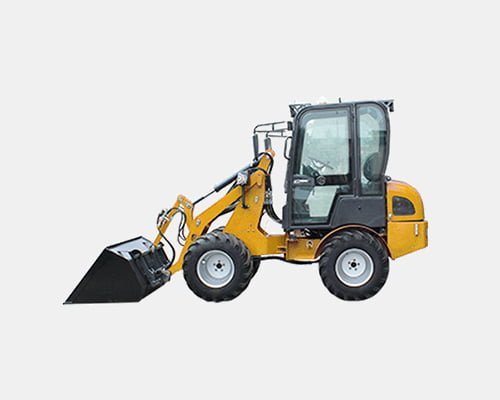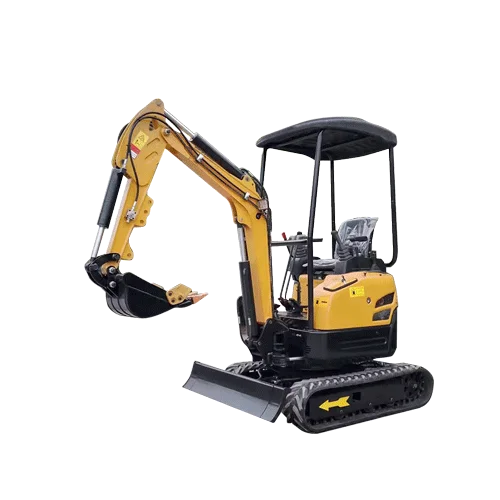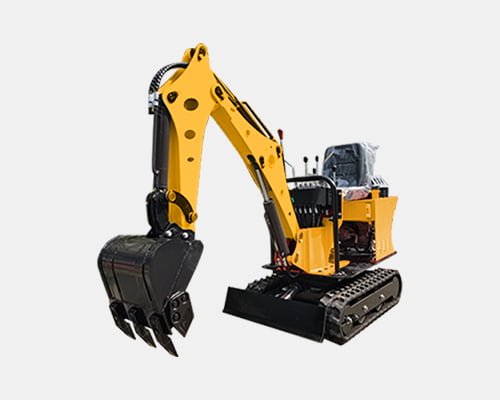Do Excavators Have Titles?Excavators are a vital part of the construction and earth-moving industry, but have you ever wondered if they have titles, just like vehicles? In this article, we’ll delve into the world of excavators, their titles, and why these titles matter.
Understanding Excavators and Their Titles
Introduction to Excavators
Do Excavators Have Titles?Excavators are heavy construction machines designed for digging, scooping, and lifting heavy materials. They come in various sizes and configurations, making them essential tools for a wide range of projects, from building construction to mining.Excavators are equipped with powerful hydraulic systems that enable them to handle diverse tasks efficiently. Their versatility and robust design make them indispensable in industries such as agriculture, demolition, and landscaping, where precise digging and material handling are crucial.

The Importance of Titles
Do Excavators Have Titles?Titles for excavators may not be as commonly discussed as those for cars, but they play a crucial role in the construction industry. These titles serve to identify and verify ownership of these heavy machines, ensuring accountability and compliance with legal regulations.
A Brief Overview of Excavator Types
Excavators come in various forms tailored to specific tasks and terrains. Common types include mini excavators, crawler excavators, wheeled excavators, and amphibious excavators. Do excavators have titles? Yes, titles are crucial for legal ownership and compliance across these types. Mini excavators are compact and maneuverable, ideal for small spaces, requiring titles for ownership verification. Crawler excavators provide stability on rough terrain, needing titles for legal compliance during heavy-duty tasks. Wheeled excavators are mobile for road construction, necessitating titles for legal transfer. Amphibious excavators are vital for water tasks, needing titles to meet regulatory requirements.

Types of Excavators
Mini Excavators
Mini excavators, also known as compact excavators, are ideal for small-scale construction projects or tasks in confined areas where maneuverability is crucial. Their compact size allows them to navigate through narrow passages and operate in spaces where larger equipment cannot easily access. Do excavators have titles? Despite their small stature, mini excavators are equipped with powerful hydraulic systems that enable them to perform a variety of digging and lifting tasks efficiently. Proper documentation, including titles, is essential for legal ownership and compliance for mini excavators. These titles verify ownership and ensure regulatory adherence, supporting their versatility with attachments such as buckets, augers, and hydraulic thumbs for different job requirements.
Crawler Excavators
Crawler excavators, known for stability on rough terrain, distribute weight evenly with caterpillar tracks, ensuring excellent traction and preventing slippage. Do excavators have titles? This stability enables effective operation on slopes and rough landscapes, suitable for heavy-duty digging, demolition, and excavation projects. Crawler excavators range in size from compact urban models to large machines for mining and infrastructure. Titles are essential for verifying ownership and compliance with legal requirements, supporting their use in various industrial applications.
Wheeled Excavators
Wheeled excavators are designed for mobility and versatility in projects where frequent relocation or travel on paved surfaces is necessary. Unlike crawler excavators, they use wheels instead of tracks for faster movement between job sites and easier transportation on roads. Do excavators have titles? Popular in urban and road construction, wheeled excavators offer comparable digging capabilities to crawler models with enhanced maneuverability. Titles are essential for verifying ownership and ensuring compliance with legal requirements, supporting their use across diverse construction environments.
Amphibious Excavators
Amphibious excavators are specialized for aquatic environments like wetlands and lakes. Do excavators have titles? They feature pontoons or floating tracks for floating and operating in water, crucial for dredging, shoreline construction, and environmental projects. Designed with sealed components to prevent water ingress, these excavators have long-reach arms and specialized buckets for precise underwater excavation. Their versatility in both land and water tasks makes them vital for waterfront development and environmental remediation, requiring accurate titles to verify ownership and comply with legal regulations.

The Role of Titles in Excavators
Defining Machine Titles
Excavator titles serve as legal documents confirming ownership and providing crucial details like make, model, serial number, and operational history. Do excavators have titles? They are essential for verifying ownership authenticity, facilitating transactions, and complying with local equipment registration regulations. These documents ensure transparency and accountability in equipment ownership, crucial for legal compliance in construction and heavy equipment industries.
The Significance of Titles in the Construction Industry
Do Excavators Have Titles?In the construction industry, where expensive equipment is often leased or transferred between companies, titles are vital. They ensure that the right people are accountable for the machines and that all legal requirements are met.

The Functionality of Titles
How Titles Make Excavators Identifiable
Titles make excavators identifiable with details like make, model, serial number, and ownership info. Do excavators have titles? They help verify authenticity, ensuring transparency and preventing ownership disputes in transactions.
Legal and Regulatory Aspects of Titles
Do Excavators Have Titles?Titles also play a crucial role in complying with legal and regulatory requirements. They confirm that the machine is not stolen, and its owner is legally entitled to use it.
Obtaining Titles for Excavators
The Process of Title Acquisition
Obtaining an excavator title involves submitting documentation to authorities like the DMV. Do excavators have titles? Required documents include proof of ownership, application forms, identification, and possibly a machine inspection to ensure safety compliance. Proper documentation is crucial for legal ownership and regulatory compliance in acquiring excavators, supporting smooth transactions and operational legitimacy in construction and heavy equipment industries.
Important Documentation
To acquire an excavator title, necessary documentation includes purchase invoices, manufacturer’s certificate of origin (for new machines), prior title (if applicable), and lien release documents for financed excavators. Do excavators have titles? These documents verify ownership legitimacy and prevent disputes. Accurate documentation expedites the title acquisition process, ensuring timely registration and legal operation of the excavator while complying with regulatory standards.

Title Transfer and Ownership
Buying and Selling Excavators
When buying or selling an excavator, transferring the title is crucial to ensure legal transparency. Do excavators have titles? This document proves ownership transfer, detailing transaction specifics like purchase price, sale date, and equipment condition. It’s essential for both parties to protect their interests and comply with legal requirements, ensuring a smooth transaction in the construction and heavy equipment industries.
Transferring Titles
Do Excavators Have Titles?Transferring titles usually involves notifying the relevant authorities of the change in ownership and updating the title accordingly.
The Importance of Proper Documentation
Ensuring a Smooth Transaction
Proper documentation and accurate titles play a crucial role in ensuring a smooth and legally sound transaction when buying or selling an excavator. Do excavators have titles? They provide clear evidence of ownership transfer, facilitating adherence to legal requirements. This documentation involves completing transfer forms, providing a valid title, and accurately recording all financial transactions related to the sale. It’s essential for maintaining transparency and compliance in the construction and heavy equipment industries.
Avoiding Legal Complications
Lack of proper documentation, like incomplete or inaccurate titles, can lead to legal complications when buying or selling an excavator. Do excavators have titles? Issues may include disputes over ownership, difficulty in registering the equipment, or fraud accusations without clear proof of ownership. Clear and valid documentation is crucial to protect both parties, ensuring compliance with local laws and regulations governing equipment transactions in construction and heavy industries.

Title Verification and Inspection
The Importance of Checking Titles
Before buying, selling, or leasing an excavator, it’s crucial to verify the authenticity of the title to ensure legal ownership and avoid potential disputes. Checking the title involves confirming that the seller or lessor has the legal right to transfer ownership or lease rights to the excavator. It also ensures that there are no outstanding liens or legal claims against the equipment that could complicate the transaction.
Identifying Red Flags
Do Excavators Have Titles?Checking for red flags on the title, such as inconsistencies or signs of forgery, can prevent legal troubles down the road.
Legal Implications
Legal Consequences of Improper Titles
Having improper or fraudulent titles for an excavator can lead to significant legal repercussions for both buyers and sellers. It can result in disputes over ownership, difficulties in registering the equipment, and potential financial losses. Moreover, using improper titles may violate local laws and regulations related to equipment ownership and operation, leading to fines or legal action by authorities.
Penalties for Title Fraud
Title fraud involving excavators or any heavy equipment is taken very seriously by law enforcement and regulatory agencies. Those found guilty of title fraud may face severe penalties, including substantial fines, civil penalties, and criminal charges. Additionally, individuals involved in title fraud may be liable for damages to affected parties, such as the rightful owner or financial institutions. It’s essential for all parties involved in equipment transactions to exercise due diligence in verifying title authenticity to avoid legal consequences and uphold ethical business practices.
Maintenance and Titles
How Titles Affect Maintenance
Keeping excavator titles up to date is essential for smooth maintenance because it facilitates accurate tracking of machine history and usage. Do excavators have titles? Properly maintained titles document important information such as service records, repairs, and inspections, crucial for scheduling maintenance tasks and ensuring the excavator operates efficiently and safely. This documentation also helps owners and operators adhere to manufacturer recommendations and regulatory requirements, ultimately extending the equipment’s operational life and reducing downtime in the construction and heavy equipment industries.
The Future of Excavator Titles
Technological advancements are rapidly changing how excavator titles are managed and processed. Digital titles, which are increasingly prevalent, offer numerous benefits over traditional paper titles. They facilitate easier and faster transfer of ownership or leasing rights, reduce paperwork and administrative burdens, and improve accessibility to title information through electronic databases. Digital titles also enhance security by reducing the risk of document loss or tampering. As digital infrastructure continues to evolve, the adoption of electronic titles is expected to become more widespread, providing greater convenience and efficiency in managing excavator ownership and regulatory compliance.
Conclusion
In conclusion, titles for excavators are not just pieces of paper; they are vital documents that ensure the legitimacy of ownership and compliance with legal requirements in the construction industry. As technology evolves, digital titles may become more prevalent, making transactions smoother and more efficient.
FAQ
What happens when an excavator does not have a certificate of ownership?
- An excavator without a certificate of ownership may face legal problems and its ownership may be difficult to prove.
Can an excavator’s certificate of ownership serve as legal proof of ownership?
- Yes, an excavator’s certificate of ownership is a legal document that confirms ownership.
How to deal with situations where the ownership of an excavator is unclear or disputed?
- If the ownership of an excavator is unclear or disputed, legal procedures may be required to resolve it, involving relevant legal documents and evidence.
How to ensure that the transfer of ownership of an excavator goes smoothly?
- To ensure that the transfer of ownership of an excavator goes smoothly, it is necessary to complete the ownership transfer documents and transaction registration, and comply with the legal procedures and regulations of the region.
Are there different requirements for obtaining a certificate of ownership for different types of excavators?
- The requirements for obtaining a certificate of ownership are generally similar, but the specific regulations may vary depending on your region and local regulations.

